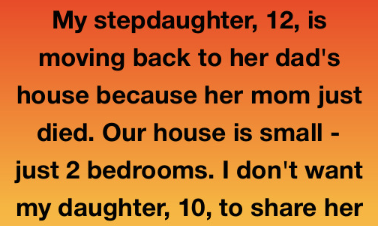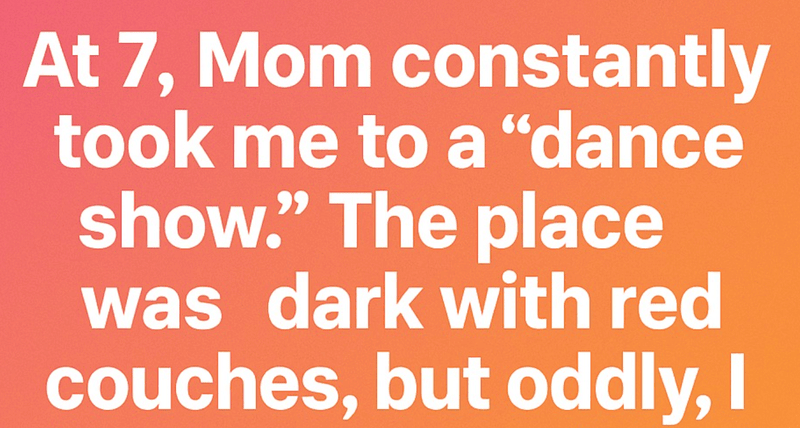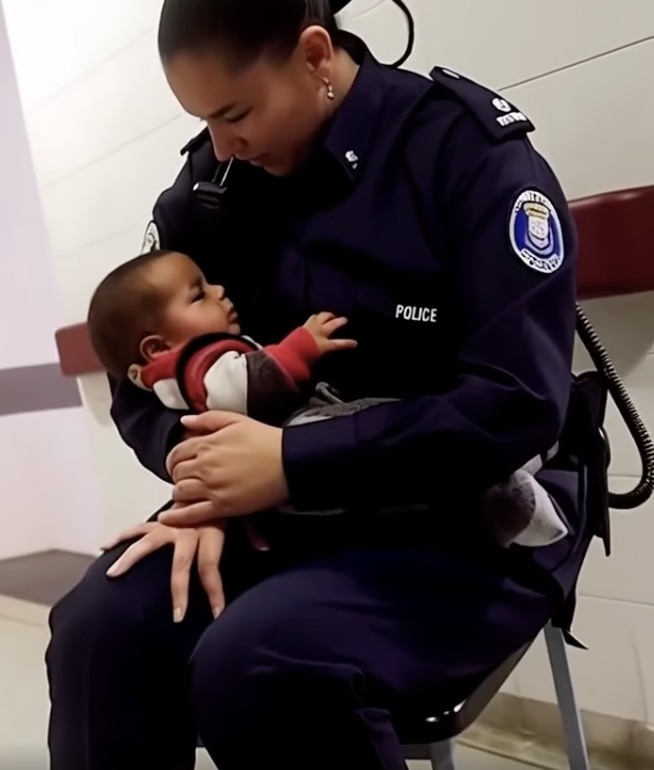My stepdaughter, Lina, aged 12, returned to her father’s home after her mother’s passing. Our house, with only two bedrooms, felt cramped. I wanted my daughter, Bella, who is 10, to keep her own space. So, I turned to my husband and said, “Lina could stay with your mother for now. Bella’s comfort comes first.” He gave a gentle smile.
The following morning, I stood frozen in the doorway. Bella had spread a blanket on the floor, tucked her favorite stuffed animal beside her, and given her bed to Lina.
She wasn’t angry. She wasn’t trying to prove a point. It was simply what she chose to do, as if it were the most natural act in the world.
I lingered there, watching quietly. Lina lay curled on the bed, clutching a pillow, her eyes still swollen from the tears she’d shed the night before. Bella, already awake, sat cross-legged on the floor, sketching softly in her notebook, as if this were her routine.
Words escaped me.
The previous evening, I’d told my husband that accommodating Lina wouldn’t work. I suggested she stay with her grandmother temporarily, until we could sort things out. I convinced myself this was logical, even kind, considering her grief.
“She needs a stable environment,” I said. “It’s too much to expect her to adapt to a new home, new rules, and everything else right now.”
Truthfully, I was reluctant to disrupt our family’s rhythm. Our home was small, and Bella had her space—her toys, her bedtime rituals. I worried Lina’s presence would unsettle that.
Still, I agreed Lina could stay for a night or two.
And now, here we were.
Bella noticed me standing there. With a bright smile, she whispered, “Shhh, she’s still sleeping.”
“Why are you on the floor, sweetheart?” I asked, kneeling beside her.
“She looked so sad,” Bella replied softly. “I thought she deserved the bed.”
My throat tightened.
“She lost her mom,” Bella continued. “If I lost you, I’d want someone to be kind to me.”
I was speechless, struck by the wisdom of my 10-year-old.
That moment shifted something within me.
I prepared breakfast in silence, wrestling with guilt. My husband sensed it. He asked if I was okay. I nodded, but he understood. He always did.
Lina joined us at the table, her eyes red, her shoulders heavy. She picked at her food. Bella sat beside her, offering to braid her hair. Lina nodded, and a faint smile appeared.
I wanted to make things right. That evening, I pulled my husband aside and said, “Lina can stay. We’ll make it work.”
He didn’t gloat. He simply hugged me and whispered, “Thank you.”
That night, we cleared a corner of Bella’s room for Lina’s belongings. The girls chose stuffed animals to share, and Bella gave Lina the top drawer in the dresser.
Over the weeks that followed, something remarkable unfolded.
The girls grew close.
Lina, reserved at first, began to share. She spoke of her mother—how she sang while washing dishes, crafted perfect pancakes on Sundays, and tucked her in with a kiss and the words, “You’re stronger than you know.”
Bella listened, sometimes holding Lina’s hand.
One afternoon, I overheard Lina say, “I miss her so much it hurts.”
Bella responded, “Maybe we can miss her together.”
They began brushing each other’s hair, watching cartoons, and building blanket forts. I expected conflicts, but instead, they grew into something like sisters.
Yet, I wrestled with my own doubts.
Had I failed as a stepmother? Why was I so quick to push Lina away? Why didn’t I embrace her when she needed it most?
One evening, I sat down with Lina in the kitchen, where I’d made her favorite—spaghetti with extra cheese. “I need to say something,” I began.
She looked up, puzzled.
“When I heard you were coming to live with us, I wasn’t kind. I didn’t make room for you in my heart. I’m sorry.”
She paused, then shrugged. “It’s okay. Mom said grown-ups make mistakes too.”
I smiled, tears welling. “She was wise.”
Lina nodded. “Yeah, she was.”
We sat quietly. Then she asked to help with the dishes.
Things eased after that, though challenges remained.
Grief is unpredictable. Some nights, Lina cried herself to sleep. Other times, she snapped over small things—like when Bella borrowed a hair clip or when I asked her to tidy her side of the room.
It wasn’t easy. It stung at times.
But we kept moving forward.
One evening, my husband’s mother called, offering to take Lina in. Her guest room was ready, she said.
He thanked her but declined. “We’re a family now,” he said. “She stays.”
Lina’s smile that night was radiant.
Still, there were whispers at school.
Children can be unkind.
One boy called Lina “the orphan girl.” Another told Bella that Lina wasn’t her real sister.
Bella punched him. She got detention. We had a serious talk.
“You can’t hit, sweetheart,” I said, trying to stay firm.
“He said she didn’t belong,” Bella whispered, trembling. “But she does. She’s my sister.”
I felt torn between pride and concern.
So we set rules: no hitting, but always defend each other.
One day, Lina brought home a drawing—four stick figures holding hands: me, my husband, Bella, and her. Above them, she wrote, “Home is who stays.”
I framed it.
Months passed. The girls grew closer. We adjusted to the shared room, the noise, the laughter, the tears. I even missed them when they were at school.
Then came an unexpected call.
My ex-husband, Bella’s father, reached out. Absent for years, he now wanted custody every other weekend.
“I’ve changed,” he claimed. “I want to be a better father.”
I doubted him. Bella barely knew him. But legally, I couldn’t refuse outright. We agreed to try.
Bella cried before her first weekend away. She didn’t want to leave Lina.
“What if she needs me?” she asked.
“She’ll be okay,” I said. “And so will you.”
It wasn’t simple, but something beautiful emerged.
Before Bella’s first weekend away, Lina made her a bracelet. “So you won’t forget me,” she said.
Bella made one too. They called them “heart bands.”
It became their tradition. Each time Bella left, they exchanged small tokens—a note, a drawing, a pebble from the yard.
When Bella returned, they rushed to each other, as if separated for years, not days.
It showed me how love can grow, even in difficult moments.
Then came another challenge.
One rainy afternoon, the school counselor called. Lina had been withdrawn, not engaging in class.
When I picked her up, she was silent, staring out the car window.
At home, she went to the bedroom and shut the door.
Later, I knocked softly and entered. She sat on the floor, holding a photo of her mother.
“She’s fading,” Lina whispered.
“What do you mean?”
“I can’t hear her voice anymore. Or remember her smell. I’m scared.”
I sat beside her. “You’re not forgetting her. Your heart’s making room for new memories. That’s okay.”
She looked at me, searching my face.
“Will you still love me if I forget her?”
My heart broke.
I held her close. “I’ll love you no matter what. Your mom would want you to feel happy, safe, and loved.”
She nodded against my shoulder.
In that moment, I knew she was mine—not by blood, but by choice. By love.
Years later, in high school, the girls created a video for a school project called What Family Means.
In it, Bella shared how she gave Lina the bed that first night. Lina spoke of her fear of joining our family and how Bella made her feel welcomed.
They concluded, “Family isn’t who you expect. It’s who shows up.”
The video spread widely. Teachers cried. I cried. My husband cried, which was rare.
Reflecting, I realized I nearly missed this blessing because I clung to familiarity.
But love—true love—creates space. It transforms.
Sometimes, it arrives in messy, unexpected, heart-wrenching ways.
Now, Bella and Lina are in college, in different cities, but they talk daily. They still call each other sisters.
Last Christmas, they gave me a scrapbook filled with memories of their childhood together.
On the final page, they wrote:
“Thank you for saying yes, even when it was hard. You gave us a home.”
Holding that book, I thought about how close I came to saying no, to keeping things neat and simple.
But when you open your heart, even slightly, life can fill it in ways you never dreamed.
Here’s what I’ve learned:
Comfort is fleeting. Love is messy, inconvenient, and sometimes frightening. But it’s also what makes us more than we thought possible.
If this story touched you, share it. Someone might need a reminder that family isn’t what you expect—it’s what you build.
And sometimes, it begins with a blanket on the floor.




